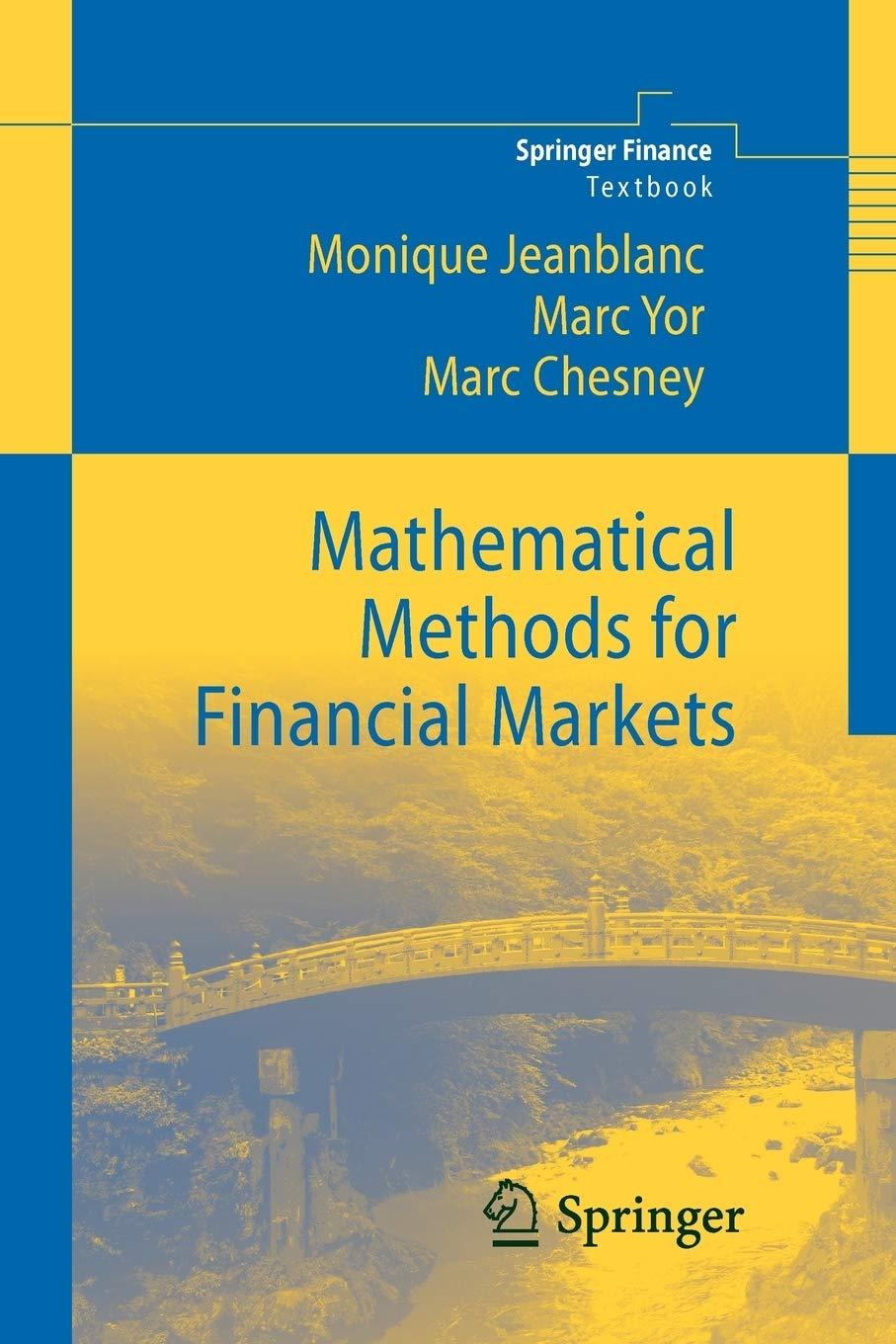Let (varphi) be in (C_{b}^{1}). Prove that (left(varphileft(L_{t}^{0} ight)-left|B_{t} ight| varphi^{prime}left(L_{t}^{0} ight), t geq 0 ight)) is
Question:
Let \(\varphi\) be in \(C_{b}^{1}\). Prove that \(\left(\varphi\left(L_{t}^{0}\right)-\left|B_{t}\right| \varphi^{\prime}\left(L_{t}^{0}\right), t \geq 0\right)\) is a martingale. Let \(T_{a}^{*}=\inf \left\{t \geq 0:\left|B_{t}\right|=a\right\}\). Prove that \(L_{T_{a}^{*}}^{0}\) follows the exponential law with parameter \(1 / a\).
Use Proposition 4.1.7.8 together with Lévy's Theorem. Then, compute the Laplace transform of \(L_{T^{*}}^{0}\) by means of the optional stopping theorem. The second part may also be obtained as a particular case of \(\longmapsto\) Azéma's lemma 5.2.2.5.
Proposition 4.1.7.8:
Let \(\varphi\) be a \(C^{1}\) function. Then, the process
\[\varphi\left(M_{t}\right)-\left(M_{t}-B_{t}\right) \varphi^{\prime}\left(M_{t}\right)\]
Azéma's Lemma 5.2.2.5:
Let \(B\) be a \(B M\) and \(\tau\) a stopping time such that \(\left(B_{t \wedge \tau} ; t \geq 0\right)\) is uniformly integrable, and satisfies \(\mathbb{P}\left(B_{\tau}=0\right)=0\). Let \(A\) be the predictable compensator associated with \(g_{\tau}\). Then, \(A_{\tau}\) is an exponential variable with mean 1.
Step by Step Answer:

Mathematical Methods For Financial Markets
ISBN: 9781447125242
1st Edition
Authors: Monique Jeanblanc, Marc Yor, Marc Chesney





